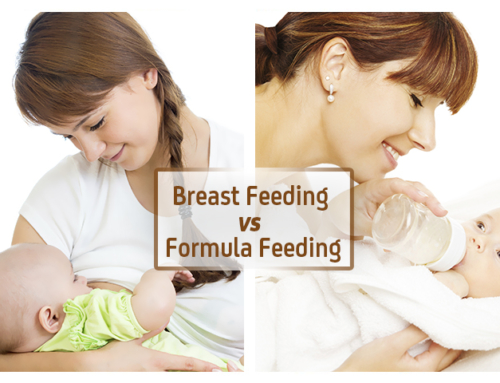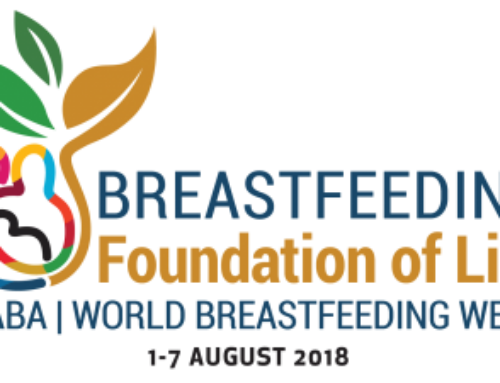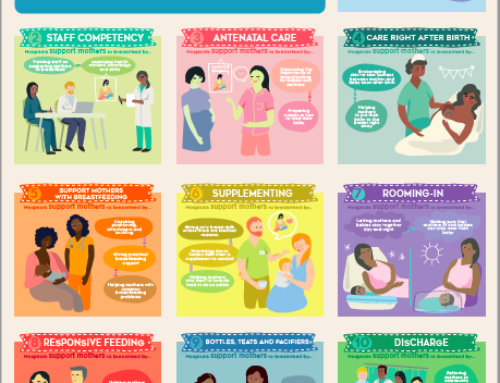To read this in Polish, please click here.
 Often we are told that there’s really too much focus on breastfeeding in the media and amongst parents: “It’s everywhere, everyone knows it’s “best”, and can’t we just cool it on the breastfeeding information?” The problem is that the reason there are so many breastfeeding campaigns is that they are very sorely needed. As an example, the other day I asked what the *worst* piece of breastfeeding advice women had gotten was on facebook. Over 300 comments later, it was clear that there is a very real reason we need to see change in our society.
Often we are told that there’s really too much focus on breastfeeding in the media and amongst parents: “It’s everywhere, everyone knows it’s “best”, and can’t we just cool it on the breastfeeding information?” The problem is that the reason there are so many breastfeeding campaigns is that they are very sorely needed. As an example, the other day I asked what the *worst* piece of breastfeeding advice women had gotten was on facebook. Over 300 comments later, it was clear that there is a very real reason we need to see change in our society.
Comments mothers had gotten from health professionals, friends, and family (sadly most are from health professionals):
“Your baby has jaundice and therefore needs formula.” This is based on the idea that breastfeeding causes hyperbilirubinemia and that cessation of breastfeeding is the ideal treatment
“You can’t breastfeed once you’ve gotten mastitis.” Mastitis sucks, there’s no doubt. However, it’s actually quite common with a global prevalence of about 10% according to the World Health Organization[4]. It also clears up when milk starts flowing properly and some cases that are more severe will clear up with the use of antibiotics. The funny thing is, continuing to nurse with a correct latch (which may include looking for tongue ties) is necessary to fix bouts of mastitis (or plugged ducts). In fact, stopping breastfeeding can make things worse. (For more information on treatment, see [5].)
“It’s impossible to breastfeed twins.” Let’s look at this two different ways: evolutionarily and practically. Evolutionarily, if it was impossible to breastfeed twins, how did the gene for twins survive? I think death would have pretty much wiped it out (because yes, it is genetic). I realize with fertility drugs and procedures we have higher rates of twins, but the fact that we have twins at all means it could not have been “impossible” to feed them. Now let’s look at it practically: You have two breasts and two babies. Even if they were completely in sync and had to feed at the same time every time, you would still practically be able to feed them.
“You must feed every two hours.” Even though most “schedules” tell you to go longer, women need to be looking at their baby and not a clock. Two hours, three hours, four hours – it’s the same difference of ignoring your babies needs and signals in favour of a schedule set by someone else. Now, some babies will feed every two hours (or less!) but it shouldn’t be forced.
“You have to stop at six months/nine months/one year.” I can say I know people that feel so strongly about this that they truly did stop the day their child turned one. It was cold-turkey for the child. I have no idea where people get these ideas from, but current recommendations from the World Health Organization are for a mother to nurse two years or beyond, so long as it continues to work for the dyad. Now, some babies will wean earlier than that, some will have to stop for other reasons, but there is no “set date” at which you need to stop nursing.
“You have to stop once they get teeth.” This one drives me nuts. First off, does anyone thing babies can really do much with one or two teeth? That these temporary teeth (whose primary function is actually to help the jaw develop properly for permanent teeth, along with, of course, chewing foods later on[6]) are enough for a baby to move to an all-solid diet? Second, are people stupid enough to believe that any baby who was born with a tooth (which has happened) shouldn’t nurse? If so, do they assume historically these babies were just left to die? Finally, though this seems to be about biting – something that many babies try, but also learn to stop quite quickly – do people not realize a baby can’t bite and nurse at the same time because of how they latch? If they bite, they are done suckling (even if just momentarily). Folks: Your baby can nurse and have teeth. Heck, I’m nursing a 3 ½ year old. She’s got lots of teeth and hasn’t bitten since she tried with her first few teeth (and only then when teething and looking for pain relief herself).
“If your baby is hungry soon after feeding, s/he’s not getting enough.” Let’s define “soon after” – 5 minutes? 10 minutes? An hour? Some babies nurse every 30 minutes at the start. Some nurse regularly later on as they get distracted while nursing and simply don’t finish what they started and return when they realize they are still hungry. If baby does not seem satiated or if you are concerned, make an appointment with a Lactation Consultant who can better help you diagnose any problem and help find a solution.
“Use sandpaper to harden your nipples up.” I don’t even know what to say. I can only assume the people that recommended this are either masochists or sadists. Stay far, far away.
“It should come easily to you.” Breastfeeding doesn’t come “easily” to most women in our culture because we don’t spend a lot of time learning the art from other women in our community. There are also a host of problems that may need resolving in the first few weeks including incorrect latches, food sensitivities, nipple pain, and more. The problem is that this is an expectation that many women have and in turn give up from because it doesn’t come easily; however, around 80% of women encounter problems breastfeeding at the start and without help and support will give up[8]. If you hear this said to a woman, please step in and inform her otherwise.
“Breastfed babies don’t need to be burped.” Some people believe that the only air babies inhale while feeding is from a bottle. Not true. Not all babies have perfectly sealed latches. Not all babies don’t unlatch and relatch while getting some air in too. Although it may be true to say breastfed babies may burp less than bottlefed babies on average, it’s by no means not needed. If your baby needs to burp, your baby needs to burp.
“If your baby isn’t eating, take him/her off the breast.” (Similar to “Don’t let your baby use you as a pacifier.”) Not only is this not true, this may actually be detrimental to nursing relationships. Babies suckle for comfort; remember, the pacifier was designed as a substitute for the nipple for babies because they often need this type of oral suckling to help calm them. Babies who don’t feel they can obtain comfort from the nursing relationship may be more likely to wean early.
“Your baby needs to feed for [a minimum of/a maximum of] X minutes on each breast.” I know the point of this is to make sure women empty each breast so that babe reaches the hindmilk, however, every woman’s breast and child will be different and take different amounts of time to empty. When we give hard and fast rules on timing, this can often create more stress for women who are already struggling with the demands of adjusting to nursing. This can also be problematic if a woman’s breast takes a longer amount of time to empty as a mom may switch baby over before emptying the breast[9]. Teaching a woman to recognize the symptoms if her baby is not getting hindmilk (which will also affect milk production as the breast needs to empty, or be close, to keep producing) would be much more beneficial.
“Undress your baby to make him/her cold so s/he’ll get hungry.” Yes, babies tend to nurse when they are cold because the milk can warm them; however, I think there better ways. If you have a baby who is refusing to latch or nurse, it is most likely not because s/he isn’t hungry, but something else. Check out this resource – [10] – for advice and recommendations. [Note this is different that undressing for skin-to-sve and in turn give up from because it doesn’t come easily; however, around 80% of women encounter problems breastfeeding at the start and without help and support will give up[8]. If you hear this said to a woman, please step in and inform her otherwise.
“Breastfed babies don’t need to be burped.” Some people believe that the only air babies inhale while feeding is from a bottle. Not true. Not all babies have perfectly sealed latches. Not all babies don’t unlatch and relatch while getting some air in too. Although it may be true to say breastfed babies may burp less than bottlefed babies on average, it’s by no means not needed. If your baby needs to burp, your baby needs to burp.
“If your baby isn’t eating, take him/her off the breast.” (Similar to “Don’t let your baby use you as a pacifier.”) Not only is this not true, this may actually be detrimental to nursing relationships. Babies suckle for comfort; remember, the pacifier was designed as a substitute for the nipple for babies because they often need this type of oral suckling to help calm them. Babies who don’t feel they can obtain comfort from the nursing relationship may be more likely to wean early.
“Your baby needs to feed for [a minimum of/a maximum of] X minutes on each breast.” I know the point of this is to make sure women empty each breast so that babe reaches the hindmilk, however, every woman’s breast and child will be different and take different amounts of time to empty. When we give hard and fast rules on timing, this can often create more stress for women who are already struggling with the demands of adjusting to nursing. This can also be problematic if a woman’s breast takes a longer amount of time to empty as a mom may switch baby over before emptying the breast[9]. Teaching a woman to recognize the symptoms if her baby is not getting hindmilk (which will also affect milk production as the breast needs to empty, or be close, to keep producing) would be much more beneficial.
“Undress your baby to make him/her cold so s/he’ll get hungry.” Yes, babies tend to nurse when they are cold because the milk can warm them; however, I think there better ways. If you have a baby who is refusing to latch or nurse, it is most likely not because s/he isn’t hungry, but something else. Check out this resource – [10] – for advice and recommendations. [Note this is different that undressing for skin-to-skin contact which can help stimulate suckling and is good for babe.]
“Your boobs are too small/too large to breastfeed properly.” This is one of the most common misconceptions about breasts and breastfeeding around. Let me state it clearly: There is NO relationship between breast size and ability to breastfeed. None. Breasts are made to make milk and the difference between large and small breasted women is fatty tissue which has nothing to do with milk production. The parts of the breast we use for milk production will develop during pregnancy regardless of breast size.
“Your baby will starve if they only get breast milk.” How does this person think we survived as a species then? What does s/he think we did for hundreds of thousands of years before formula (as I can only assume that’s what is being recommended as supplementation)? No matter which way you cut it, there no excuse for this type of ignorance.
“You need to drink [cow’s] milk to be able to make milk.” I had a friend in high school who answered in class that the Grand Canyon was one of the six geographical regions of Canada[11]. This comment makes that comment look like “E=mc2”.
***
In addition to these were the commonly known traps of telling moms they aren’t producing enough if their milk doesn’t come in quickly enough, or that you need to supplement to give yourself a break (which may be true in some cases, but is told to women as if they must do it), or that you have to create a feeding schedule right from birth. It seems the breastfeeding movement still has a long way to go. Until women are being given accurate information and the support they need, no one has the right to say that we don’t need anything more to help increase breastfeeding rates and successes. Let’s work to make that happen.
***
If you are in need of individualized parenting help, I offer services via email, Skype, and phone on a variety of parenting topics. You can find out more here.






[…] The Worst Bits of Breastfeeding Advice | Evolutionary Parenting … https://gku.flm.mybluehost.me/evolutionaryparenting.com/When you realize what awful advice is being passed on to moms by family, friends, and more importantly, medical professionals, you realize how far we still have to go in breastfeeding education. […]
[…] The Worst Bits of Breastfeeding Advice | Evolutionary Parenting … https://gku.flm.mybluehost.me/evolutionaryparenting.com/When you realize what awful advice is being passed on to moms by family, friends, and more importantly, medical professionals, you realize how far we still have to go in breastfeeding education. … That these temporary teeth (whose primary function is actually to help the jaw develop properly for permanent teeth, along with, of course, chewing foods later on[6]) are enough for a baby to move to an all-solid diet? Second, are people stupid enough to believe that any … […]
Tracy i really like your writing about breastfeeding. I may say that with your help i am able to do this for last 11months. Yes we need articles like this all over the world to encourega women to do something so natural and beautiful like breastfeeding. I now for myself that withouot the right info i would go to formula, becouse my baby girl was sleepy one and not eatiing on the scheduale… Now i know there is nothing wrong if a baby eats every 30 min with little naps betwen feedings 🙂
Excellent!! I’m so glad you overcame the bad advice and have a healthy, happy breastfeeding relationship 🙂
Tracy,
I feel very encouraged by how confidently you take a stand against pure misinformation and foolishness (as in the mind-boggling comment about cow’s milk). Thanks for sharing good information and helping us think about the longer-range (evolutionary) perspective.
As a midwife, mother and a grandmother I feel you are spot on Tracy.
I feel it is the health professionals who need to be educated.
My daughter had a forceps delivery(not sure if this has anything to do with it) but she really struggled with my grand daughter .My daughter experienced a lot of pain when the baby was sucking almost to the point my daughter was crying. She always said she will give it a go. I helped her with different positions but it made no difference to her pain level.
I suggested calling my Lactation consultant friend as i felt there was a posterior tongue tie.
They don’t come cheap! paid her £70 to confirm my diagnosis and the tongue tie was snipped the following day at the NHS hospital.She breast fed for 9 months. A year later my second grand daughter was breast fed for six months with no probs. She only gave up so she coudl spend more time with her older child.
I feel too many women give up because of the pain and sadly there are no lactation consultants in the maternity unit. I just wonder if anyone knows how many tongues ties are diagnosed in the nursing mothers.
So what are the symptoms to look for to make sure baby is getting hind milk?
If your baby isn’t getting hind milk you will likely have a *very* fussy baby, very gassy baby, signs of lactose intolerance (though it’s not, too much foremilk which is high in lactose will cause gut problems), and possibly failure to gain weight.
My son is 3 weeks old. He has been EBF and has a good latch. He is my 2nd baby and bf seemed to be coming really easy at first. However after his middle of the night feedings he has been extremely gassy. Crawling up my chest, screaming and miserable. Burping him the same as during the day. I thought maybe it was diet but after reading this I’m thinking maybe he isn’t getting enough hind milk because he falls asleep so fast. Any advice on confirming that is the issue and how to fix it if it is? How do I know if he is getting that hind milk?
You can pump FIRST to get the fore milk out then put him to the breast and he’ll get hind milk. If you notice a difference then you’ve found your culprit. If not, then look to diet 🙂
Actually, according to Dr. Newman the hind milk does not disappear. If baby doesn’t get it on one feed they will get it the next time baby latches on that breast. There is no need to be pumping first, or worrying about baby getting enough.
The issue though is if there’s too much foremilk, baby stops eating after just the foremilk and can have gas problems, etc. No one is claiming that the hind milk “disappears”.
I am also thinking this may be the issue with my three week old. How long would you recommend I pump before nursing to get to the hind milk?
Here’s a link on how to pump them separately so here you’d just need to pump out foremilk and get to the hindmilk for a feed 🙂
http://www.chop.edu/service/breastfeeding-and-lactation/breastfeeding-basics/separating-your-milk-to-help-your-baby-grow.html
The most common ones that weren’t just ridiculous that I had had from friends:
When your breasts go soft at around 7 weeks and are not longer engorged your no longer making milk. (No your body has just worked out how much to make)
You have to feed formula to get sleep through the night
Express and bottle feed so you know how much they are getting at each feed.
[…] Tłumaczenie ze strony: evolutionaryparenting.com […]
The one that drives me nuts is “You need to drink more milk”. I’m lactose intolerant so my MiL and some other family assumes that my son is not getting the nutrition he needs (6lb weight gain at 7 weeks begs to differ!). My answer is always “when is the last time you seen a milk cow drinking milk?”. Let’s have some common sense! {By the way, I’m not refuting that an adequate diet isn’t vital to the mother’s and therefore baby’s well-being.}
Also, my little guy is slender and the public health nurse told me I would have to supplement because of his height/weight ratio (those pounds also came with 3 inches!), but I’m not convinced a weight gain of over 12-16 oz a week is healthy or necessary, especially when it’s done artificially through formula and by all accounts he is healthy and thriving.
I normally love your articles but feel driven to comment on this one for different reasons. As a BF peer supporter one of the things which stresses new mums out a LOT is worries about fore milk vs hind milk. For the vast majority this isn’t an issue but because of an over focus on baby “getting the hind milk” you end up with ladies mistakenly diagnosing themselves with oversupply and doing things like block feeding which really impacts their milk supply. In general most women do not need to worry about this. Hind milk vs fore milk usually evens itself out over a 24 hour period. Any mum continuing to have issues with a gassy fussy baby (which most of the time is actually just normal baby wind and nothing to worry about) is better seeing an IBCLC before self diagnosing and attempting things to correct this, like additional pumping to give baby the hind milk only (which would actually exacerbate an oversupply situation) or block feeding. I fear with this section about fore milk and hind milk in this article you are actually contributing to some of the confusing and inaccurate advice new mums get.
Thank you for bringing this up – this was written several years ago when foremilk/hindmilk was still part of the discussion. I had forgotten it was in here when it was re-shared. Thanks to you and another comment on facebook, I can update it!
Another piece of advice I despise: “She nurses very often? Just space out feedings more”. Seriously, if a baby nurses very often due to problems with milk transfer this is a really bad, bad idea. Not to mention non-nutritive value of nursing…
Or “Just give her normal (sic!) milk”. This one I will leave without any comments.
Tracy – I saw on your blog a term “evolutionary breastfeeding”, which includes ~ 6 months of exclusive breastfeeding. I would like to ask what is the evidence to support calling this length of exclusive breastfeeding evolutionary (I know about current guidelines but they are not based on our evolutionary past)?